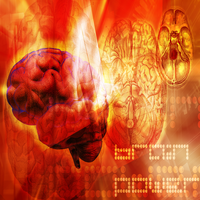Non-pharmacological and Lifestyle Approaches to Attention-Deficit/Hyperactivity Disorder: 5. Exercise, Environment and Sleep

One of the most valuable things to do to help children or adults with ADHD is to help them to structure their time.
All the approaches that we have already discussed, from medications to diets, herbs and homeopathy are all tools designed to help people get to the point where they can create, accept and maintain more structure in their lives. Exercise, the environment and regular sleep are all essential contributors.
Exercise
Aerobic exercise may be particularly helpful for people who also have a mood disorder or anxiety probably by reducing inflammatory mediators in the blood.
There is a movement therapy called eurythmy that was developed by Rudolf Steiner. It is quite popular in central Europe, and there has been a report that it could help children with ADHD.
Environment
There is evidence that children with ADHD do better if they are outside, and even being a green room seems to help them.
There are plenty of anecdotes about children and some adults with ADHD improving if they have classical or New Age music in the background. Paradoxically some like and claim benefit from “heavy metal.” There is recent evidence from New Zealand indicating that music therapy may contribute to the reduction of a range of ADHD symptoms in adolescents, as it does in younger children. With the advent of the iPod, it is easy to make a playlist of music that helps attention and concentration.
The data on the effect of watching television, computer time or playing video games is a mixed bag. There are people who say that children under the age of three should not watch television at all, and the American Academy of Pediatrics recommends that children under the age of 2 years should watch no television, and that television time should be limited to less than 2 hours daily in older children. The research data has not produced a clear answer one way or the other. Some of the most recent research does suggest a link between the amount of time that children spend
watching television and attention-deficit/hyperactivity disorder, but
it remains unclear as to whether elevated levels of television viewing
are the cause or result of ADHD symptoms. Other researchers have failed to find a connection. The best thing is to play safe and to keep television viewing to a minimum: there are so many other things for a child to be doing.
There have been questions about whether other environmental factors, particularly lead, mold and Candida could cause ADHD.
Lead toxicity is well-known to cause neurological problems, but studies of a link between lead levels and ADHD have usually failed to find a link, and in a study in which children with minimally elevated lead levels were given a drug – penicillamine – to remove lead, there was no change in ADHD rating scores. So it is unlikely that lead is a factor in most children.
Because of the high rates of allergies in people with ADHD, there have been attempts to see if mold or other environmental pollutants could be causing ADHD. So far the data has drawn a blank.
Another environmental factor that has been look at is the yeast Candida albicans. It can produce nasty infections in people with compromised immune systems. But in addition, some people have claimed that Candida infections can cause an array of medical problems, including ADHD-like symptoms. People who are thought to have Candida have been treated with diets as well as the antifungal agent nystatin, with mixed results. It would be good to do a formal study of Candida in ADHD and see if there is a link and if treatment helps. So far we just do not have one.
Sleep
Sleep disturbances are extremely common in ADHD. They often get better once an individual is treated, but it is still a good idea to practice good sleep hygiene.
- Stress management
- Exercise a couple of hours before retiring
- Keeping mentally stimulated until it is time for bed
- Though we want to have a regular bedtime and bedtime ritual, to begin with don’t go to bed until you are tired
- No caffeine, alcohol or nicotine after 6pm. (Preferably, of course, no nicotine ever!!) {Remember that many over the counter painkillers contain caffeine, as does chocolate}
- Try to keep the bedroom atmosphere relaxing, and establish a sleep ritual
- Keep the room quiet and dark
- If you like aromatherapy, lavender and chamomile are usually best
- If you cannot sleep, get up and do something relaxing: struggling to go to sleep is virtually impossible.
- Do not have a television in the bedroom. Bedrooms should be reserved only for sleep in children and for one other activity in adults
- Always get up at the same time in the morning, to try and re-set your brain, and as soon as you get up, be exposed to as much bright light as possible






